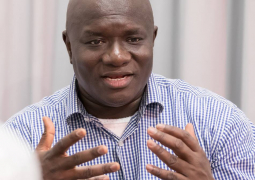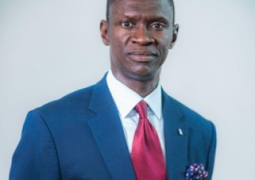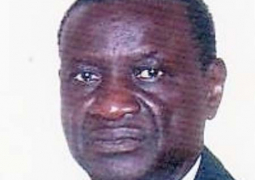With the current political tussles in Parliament, it could be observed that the politics of alliances have started inernest. The convoluted political atmosphere could have a negative impact on all political parties in the country.
The interesting aspect of the debate is that it is a Member of Parliament who tabled the bill aimed at freeing elected Councillors from Party control. The unfortunate part of this protracted debate is that Members of Parliament took care of themselves in law which keeps them in position should they jump ship from their parties to other parties. The idea of doing the same for Councillors has become a contentious issue in Parliament. NAMs should have done theirs together with the Councillors, in the absence of which Councillors should have taken care of themselves through their by-laws or through the IEC. Perhaps, the Ministry of Local Government should have reflected on these developments which no doubt would have implications for the administration of local authorities. The current impasse in the House is not a good sign for the ruling government and the other parties, particularly the UDP. It is to be recalled that cross-carpeting used to take place in the 1st Republic and there were no legal bottlenecks in doing so. However, laws changed in the body politics during the 2nd Republic, which brought about manipulations of the constitution to enhance self-perpetuating rule. Sadly, such a political mind set has still not changed in New Gambia. A change with a vision and strong political conviction is yet to emerge. The main engine of governance in my opinion is Parliament and the Parliament seems to have a mechanical breakdown in the passing of this proposed bill. Piecemeal review/amendment of laws is not the answer to good governance.
Now, let us look deeper into this political fiasco to make a determination of its implications for the politics of the parties in the arena. Amending laws for self-interest rather than Party interest seems to be part of the problems and controversy surrounding the proposed bill. One would have expected all elected Members of Parliament to come up with a bill that seeks to strengthen Party allegiance in terms of jumping ship to other parties. For an independent Member of Parliament who is free to choose any side of the political divide to support such a private members bill, theymust have been politically motivated by outside influence knowing that the independent is not bound by Party principles, loyalty and rules.
It could also be seen as a strategy to weaken the opposition UDP strength in the politics of the country and in Parliament if the bill goes through. The shifting of political alliances is at the core of the recruitment drive for parties without pillars to find their bearing in the political process. The NPP supporters seem to be succeeding in boosting the advantages of incumbency in the political process. I cannot agree more with a colleague who held the view that cross-carpeting is a common feature in African democracy where a ruling Party ends up with a majority in Parliament. The current independently elected President seems to be benefitting a lot from cross-carpeting. He came to power with no MPs. Today, he bags at least 8 of them. When the current hot bill goes through in Parliament, we will soon see Councillors moving to his camp. The end result is that the government of the current President who came to power as an independent will start getting what it wants in the National Assembly. Politicians always want to align themselves with success and the power of the day. Therefore, some of them don’t hesitate to cross over to the side of the incumbent.
The downside of cross-carpeting in politics is the fact that governance becomes lopsided because the government of the day eventually controls Parliament with many MPs on its side. In that case, dictatorship could breed in and sometimes Laws of the Jungle will define the order of the day. We have already as a country experienced the way and manner the former Parliament in the 2nd Republic enacted all types of laws, some of which were unjust and oppressive in outlook. The other downside of cross-carpeting is that it weakens the strength of the political Parties and the Party with the majority in particular. It is to be noted, therefore, that when elected officials give their backs to the very Parties that put them in office to move to other Parties, the stability of the democratic system is threatened and fragility in the governance system rears its ugly face over the nation.
Upholding the fundamental principles strengthening Party conduct is the principal responsibility of elected officials. Anything short of this would tantamount to betrayal of the peoples trust. It has been observed that the NPP and UDP have been concentrating on each other in recent times. This is an interesting development in the political equation. The two contending sides that politically empowered each other in the course of the transition are now in political rivalry. In my reading of this scenario, the political miscalculation in this competition will likely be overconcentration between the NPP and UDP in the political battlefield, in which case, both could lose out to a third united force in the 2021 elections. Parties must watch out for this possibility.
There have been persistent complaints about bad laws of more serious consequences but not a finger was raised to change them. Instead, a private members bill has been introduced. One wonders whether this is not politically concocted to suit the political expediency of politicians looking to make political gains. The question is: why were there not any private members bill in the history of the National Assembly, especially with the presence of veteran politicians? The truth of the matter in this question is hanging in the balance. It is however, worrisome if independent voicesand the voices behind the powers that be can supersede elected voices in our Parliament on an issue that could lead to the disintegration of Party politics and downsizing of the democratic process in New Gambia. Political parties should be concerned about keeping parties intact before elections in 2021.
In the contest of 16 political parties, the best strategy wins. It makes sense therefore for contenders to start gauging the political scene in its proper context. For example, it has been widely said that former President Jammeh is negotiating his return to The Gambia through the APRC Party. The relentless political gatherings by the NPP have been hitting the media waves. We continue to witness political provocations in which the UDP reacts by expelling MPs and Councillors. Such expulsions lead these elected officials to eventually jump ship to the NPP camp. While others are making efforts to consolidate power base, other parties are dreaming about the roadmap to electoral success. A winning strategy from any of the numerous political parties is yet to be seen. If the drama at the current political scene is not a wakeup call for politicians and political parties then it could be said that political maturing is missing in Gambian politics. “The tragedy in life doesn’t lie in not reaching your goal. The tragedy lies in having no goal to reach,” says Benjamin Mays. Politics fit for purpose is the way forward to transform dreams into reality.
By: D.M. Badjie
Political Scientist/Consultant





